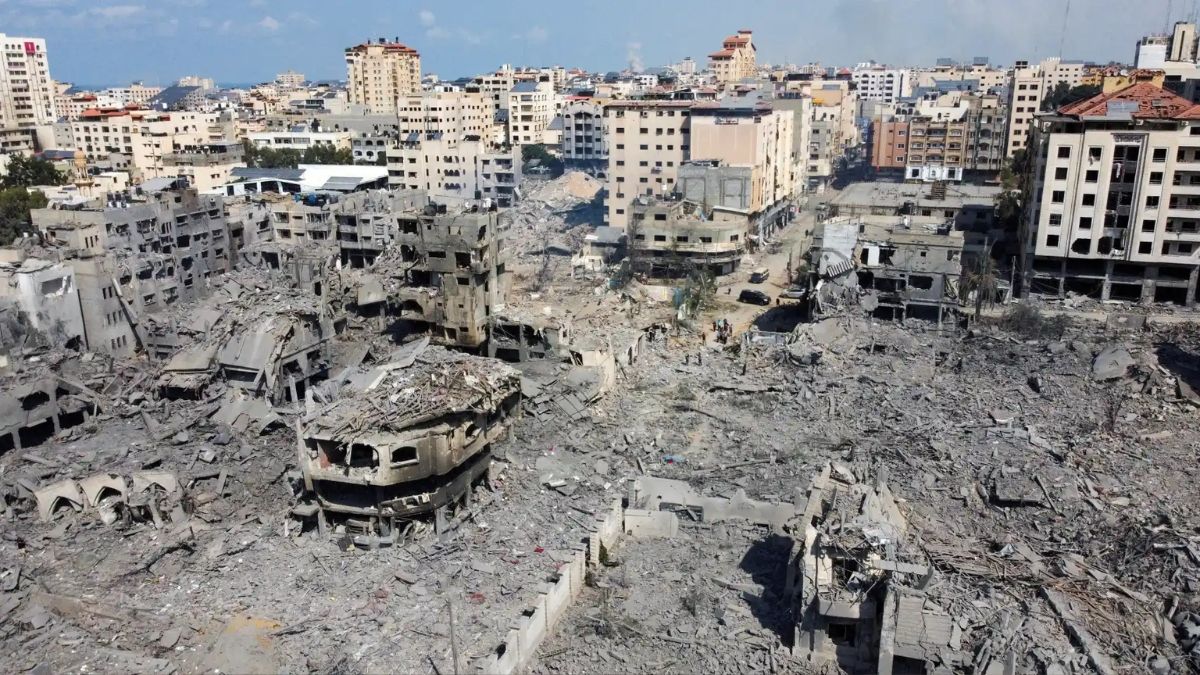The first steps of Yoav Gallant, Minister of Defense of Israel
He Yoav Gallant’s plancommunicated to the media late on Thursday, recommends that neither Israel nor Hamas govern the Palestinian enclave, and denies to settle thereJewish sentiments. This is a preliminary plan, not yet adopted by the Israeli war cabinet.
israel-gaza-conflict.jpg
Its general lines were announced on the eve of the fourth voyage of the US Secretary of State Antony Blinken to the region since the bloody attack by the Palestinian Islamist movement Hamas against Israel on October 7, which left 1,140 dead and sparked the war.
The future of the small Palestinian territory is at the center of the international community’s concerns, amid growing calls for a ceasefire.
The Hamas government
According to Hamaswhich has ruled Gaza since 2007, Israeli military operations have left 22,600 dead in almost three months, many of them women and children.
Furthermore, much of the territory has remained reduced to rubble and the UN fears a humanitarian crisis with hundreds of thousands of people displaced, dealing with hunger and disease.
Where the bombings occur
The bombing continued throughout the night in the Khan Yunis and Rafah areas, in the south of the Strip, as well as in parts of central Gaza, according to AFP correspondents. The Israeli military said its troops “hit more than 100 targets” in Gaza over the past 24 hours, including military positions, rocket launch sites and weapons depots.
The enclave’s Ministry of Health reported 162 deaths in the last 24 hours.
Post-war Gallant plan
According to Gallant’s plan, the war will continue until Israel has dismantled the “military and government capabilities” of Hamas, which it promised to “annihilate”, and freed the 132 hostages still in the hands of the Islamist group. It is estimated that at least 24 of the 250 prisoners taken by Hamas were killed.
Once Israel achieves its objectives — a horizon for which there is no set timetable — Palestinian “civil committees” will begin to assume control of the territory.
“Hamas will not govern Gaza, (e) Israel will not govern Gaza civilians,” Gallant assured, when presenting his plan to the press. Also, he added: “The inhabitants of Gaza are Palestinians. Consequently, Palestinian entities will be in charge (of management) provided that there is no hostile action or threat against the State of Israel.”
The displaced according to the United Nations Organization
The living conditions of the 2.4 million Gazans are more than precarious, and United Nations calculates that there is 1.9 million displaced. Images of the AFPTV They show entire families, seeking safety from the fighting, arriving at the border city of Rafah in overloaded cars and on foot.
“We fled from Jabalia camp to Maan (in Khan Yunis) and now we are fleeing from Maan to Rafah,” said a woman who did not want to give her name.
“(We don’t have) water, electricity or food,” he added.
A spokesman for the UN agency for Palestinian refugees told the AFP that Rafah is overwhelmed. “Usually 250,000 people live there. And now there are more than 1.3 million,” said Adnan Abu Hasna. “We are seeing a collapse of sanitary conditions” and a “significant spread” of disease, he added.
Ahmad al Sufi, head of the Rafah emergency committee, said: were needed urgently 50,000 tents to accommodate refugees.
At the Al Amal hospital in Khan Yunis, one of the few medical centers in Gaza still operating, the Palestinian Red Crescent said: seven displacedamong them a five-day-old baby, who sought refuge in the premises, They died.
United States Secretary Antony Blinken and his visit to Israeli leaders
During your visitBlinken has planned discuss with Israeli leaders “immediate measures to substantially increase humanitarian aid to Gaza,” said State Department spokesman Matthew Miller.
The head of German diplomacy, Annalena Baerbockalso will travel to the region. On Sunday he will be in Israel and will also meet with Palestinian leaders. In addition to addressing “the dramatic humanitarian situation in Gaza,” he plans to speak about tensions between Israel and Lebanon, said the spokesman for the Ministry of Foreign Affairs, Sebastian Fischer.
He fear a regional conflagration increased this week after the death of the number two of Hamas, Saleh al Aruri, in a missile attack in Lebanon. The leader died in southern Beirut, a stronghold of the Hezbollah party, a movement supported by Iran that since the beginning of the conflict has been involved in skirmishes with Israeli troops on Lebanon’s southern border.
He israeli army declared on Friday that its fighters carried out new attacks against Hezbollah targets in Lebanon.
Source: Ambito




